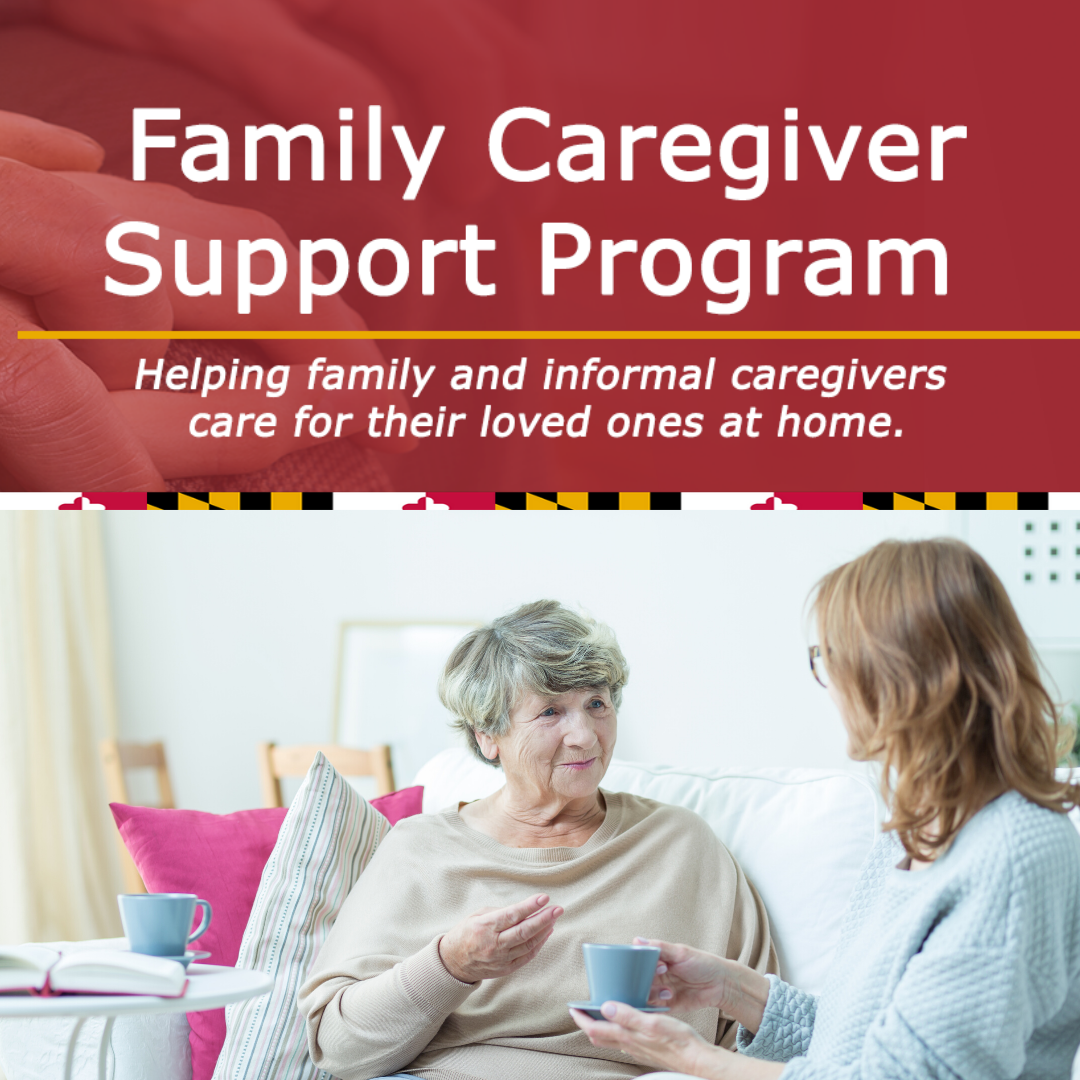
In response to the COVID-19 outbreak, the following form has been created to track family members information: https://www.cdc.gov/aging/caregiving/pdf/Complete-Care-Plan-Form-508.pdf
The Maryland Family Caregiver Support Program is administered by the Maryland Department of Aging and is part of a national network of caregiver programs funded by the federal Administration for Community Living. The program helps family and informal caregivers care for their loved ones at home for as long as possible. Family caregivers are the major source of unpaid help for older and disabled adults living in communities across the state. These caregivers typically include spouses, adult children, relatives, and friends.
Maryland's Family Caregiver Support Program works in conjunction with a host of State and community-based services to create a coordinated array of supports for individuals who need them. Studies show that these services can reduce caregiver depression, anxiety, and stress and enable them to provide care longer, thereby avoiding or delaying the need for costly institutional care.
The program offers five types of services:Information to caregivers about available services,
Assistance to caregivers in gaining access to the services,
Individual counseling, organization of support groups, and caregiver training,
Respite care, and
Supplemental services, on a limited basis
The family caregivers who are eligible to receive services include:Adult family members or other informal caregivers age 18 and older providing care to individuals 60 years of age and older;
Adult family members or other informal caregivers age 18 and older providing care to individuals of any age with Alzheimer's disease and related disorders;
Grandparents and other relatives (not parents) 55 years of age and older providing care to children under the age of 18; and
Grandparents and other relatives (not parents) 55 years of age and older providing care to adults age 18-59 with disabilities.
The Maryland Family Caregiver Support Program is administered by the Maryland Department of Aging and is part of a national network of caregiver programs funded by the federal Administration for Community Living. The program helps family and informal caregivers care for their loved ones at home for as long as possible. Family caregivers are the major source of unpaid help for older and disabled adults living in communities across the state. These caregivers typically include spouses, adult children, relatives, and friends.
Maryland's Family Caregiver Support Program works in conjunction with a host of State and community-based services to create a coordinated array of supports for individuals who need them. Studies show that these services can reduce caregiver depression, anxiety, and stress and enable them to provide care longer, thereby avoiding or delaying the need for costly institutional care.
The program offers five types of services:Information to caregivers about available services,
Assistance to caregivers in gaining access to the services,
Individual counseling, organization of support groups, and caregiver training,
Respite care, and
Supplemental services, on a limited basis
The family caregivers who are eligible to receive services include:Adult family members or other informal caregivers age 18 and older providing care to individuals 60 years of age and older;
Adult family members or other informal caregivers age 18 and older providing care to individuals of any age with Alzheimer's disease and related disorders;
Grandparents and other relatives (not parents) 55 years of age and older providing care to children under the age of 18; and
Grandparents and other relatives (not parents) 55 years of age and older providing care to adults age 18-59 with disabilities.
